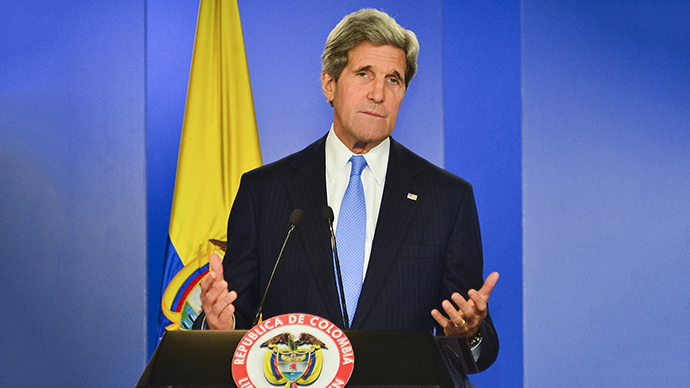Washington afraid of BRICS, needs to spy to maintain hegemony

America needs to spy on BRICS countries to exercise its new form of imperialism around the world and stay in control of economic trends as America’s economy gets weaker, geopolitical analyst Eric Draitser told RT.
RT:What impact will the NSA surveillance revelations
have on US ties in the region?
Eric Draitser: It is not going to necessarily have a
direct impact, at least not in the way we might traditionally
understand it. Where the impact will lie is behind closed doors.
The revelations particularly from the perspective of the
Brazilians about spying and surveillance, I think it was not
necessarily news in Brazil. What was interesting to them was that
surveillance was targeting economic interests and business
interests. This adds entirely new dimensions to the story. As we
all know, Brazil is one of the world’s leading emerging
economies. And because the US is the number one trading partner
in Latin America, ties between Washington and Brasilia are very,
very important. So from a political as well as economic
perspective, the Brazilians must be asking themselves, “Should we
be questioning this relationship we have with Washington?”

RT:Would you expect a tough reception from Brazil,
given that the country is seeking to strengthen its position as a
key player in the region?
ED: It would depend how we would define a “tough
reception.” For all appearances sake, it would go off as it
normally would when a Secretary of State visits a foreign
country. But as I’ve mentioned, behind closed doors, Brazilians
are upset particularly with the regional perspective. We know
that much of the surveillance was focused on the Organization of
American States and some of the other regional groupings in which
Brazil plays a key role and the US is attempting to use its
surveillance and intelligence gathering as a way of leveraging
the Brazilians as well as their regional partners in terms of
their relations. So from a Brazilian perspective, they are
asking, “Can we actually trust our American partners not only on
the political level, but also on the economic level and simply in
terms of international relations?” Remember Brazil has made
tremendous strides in improving its relationship with countries
like Argentina, Colombia, Venezuela, Chile and elsewhere; so for
them to be put in jeopardy by this sort of program, I think is
very troubling for the Brazilian side.
RT:How would you explain the fact that the
highest-profile targets on the US spying list are Brazil, Russia,
and China - all members of the BRICS bloc?
ED: It is the ruling class in the US that is tremendously
fearful of the rising economic power of BRICS grouping. It is not
just a formality that we use this term BRICS. It represents a
shift in the global economic balance of power - and the US,
knowing that its economic power is waning, is using alternative
means to exercise hegemony and project its own power and the
surveillance that the NSA operates with and other agencies as
well. That is the fundamental part of that. Whether it gives the
US the upper hand in negotiations, whether it allows them to use
blackmail and other forms of leverage – all of this is part of a
toolkit of US imperialism in Latin America and around the world.
The statements, views and opinions expressed in this column are solely those of the author and do not necessarily represent those of RT.













